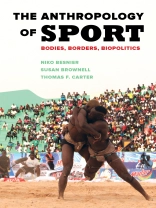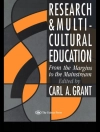Few activities bring together physicality, emotions, politics, money, and morality as dramatically as sport. In Brazil’s stadiums or China’s parks, on Cuba’s baseball diamonds or Fiji’s rugby fields, human beings test their physical limits, invest emotional energy, bet money, perform witchcraft, and ingest substances. Sport is a microcosm of what life is about.
The Anthropology of Sport explores how sport both shapes and is shaped by the social, cultural, political, and historical contexts in which we live. Core themes discussed in this book include the body, modernity, nationalism, the state, citizenship, transnationalism, globalization, and gender and sexuality.
Daftar Isi
List of Illustrations
Acknowledgments
Introduction
1 • Sport, Anthropology, and History
2 • Sport, Colonialism, and Imperialism
3 • Sport, Health, and the Environment
4 • Sport, Social Class, Race, and Ethnicity
5 • Sport and Sex, Gender, and Sexuality
6 • Sport, Cultural Performance, and Mega-events
7 • Sport, Nation, and Nationalism
8 • Sport in the World System
Epilogue: Sport for Anthropology
Notes
Selected Bibliography
Index
Tentang Penulis
Niko Besnier is Professor of Cultural Anthropology at the University of Amsterdam. He has written extensively on gender, sexuality, migration, economic relations, language, and sport. He is editor-in-chief of American Ethnologist.Susan Brownell is Professor of Anthropology at the University of Missouri–St. Louis. She is an expert on sports and Olympic Games in China, Olympic history, and world’s fairs. She is the author of Training the Body for China: Sports in the Moral Order of the People’s Republic.Thomas F. Carter is an anthropologist and the director of the Centre of Sport, Tourism, and Leisure Studies at the University of Brighton. He has written on Cuban sport, labor migration, governance, sport for development, and the politics of spectacle. His most recent book is In Foreign Fields: The Politics and Experiences of Transnational Sport Migration.












